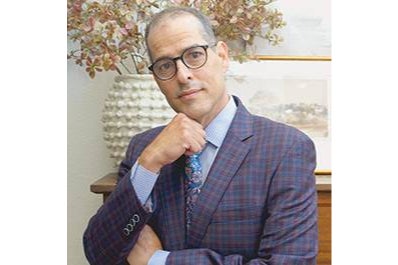
A homeless man in California has won a $2.4 million wrongful termination lawsuit, but no one can locate him.
Eight years ago, Daniel Ridge, 49, sued his former employer, Alameda Health System, claiming he was wrongfully fired from his job at a county morgue. He was also battling mental health issues at the time.
Last month, an Alameda County Superior Court jury ruled in his favor and awarded him $2.4 million for his wrongful termination, according to the Los Angeles Times.
When the verdict dropped, Ridge was not in court.
According to the paper, Ridge's mental condition has deteriorated over the last eight years to the point where he was unable to testify in his case and eventually fell into homelessness. He reported becoming estranged from his family, including his 10-year-old son.
Even Ridge's lawyers cannot find him. Lawrance Bohm, Ridge's attorney, said that finding him will require a "tremendous effort."
Donald Whitehead, the executive director for the National Coalition for the Homeless, had similar concerns, telling the LA Times that there's only so much information shelters can collect and provide when someone is searching for a specific individual.
“I’ve seen many times people searching for loved ones,” he said. “But there’s protections for people and their identity, so it’s a challenge when people get lost in the system.”
What's known about Ridge is that he lived somewhere in California during the 1980s and 1990s. Six of his friends died in gang-related violence, and in his 20s his uncle was reportedly killed in front of him when a co-worker set him on fire with a Molotov cocktail.

Two of Ridge's cousins died by suicide after that incident, according to a news statement released by the Bohm Law Group, which represented Ridge.
“The terrible life of Mr. Ridge left him with PTSD that went undiagnosed or untreated for decades as [he] lacked the resources to treat his condition,” the law firm wrote.
Ridge eventually became a certified nursing assistant and began working as a part-time morgue attendant at Highland Hospital in Oakland, which is run by Alameda Health System.
His work was generally complimented in his evaluations until 2013, when the morgue's full-time attendant took a leave of absence and then retired the following year. The full-time duties at the morgue fell to Ridge, and he was forced to work seven days a week while only receiving part-time pay.
“This meant that, among other things, Mr. Ridge did not receive any employee benefits, including health insurance,” according to the lawsuit.
Ridge reportedly complained about his work hours and lack of proper compensation on multiple occasions. In 2015, the hospital opened up hiring for the full-time position and made Ridge re-interview and apply for the job he was already doing. He was ultimately awarded the job.
His issues with his job continued. He complained that he was forced to use a landline and go to a hospital library on a different floor when he needed to research medical conditions relating to the bodies in the morgue, which other employees did not have to do. He also raised concerns after the hospital changed the way it disposed of formaldehyde, saying the new process left him feeling dizzy and suffering from shortness of breath and blurred vision.
Ridge asked for respiratory equipment multiple times but was only granted his request after 17 months of asking.
He raised further concerns about how the hospital handled bodies, noting that some would be left on gurneys outside the morgue with just a sheet covering them.
“The spilling and leaking of bodily fluids from dead bodies was not only due to a lack of body bags, but also due to the fact that bodies would occasionally be delivered to the morgue with intravenous tubes still attached to them and with needles and other hospital 'sharps' still lying on the gurneys,” the lawsuit said.
The attorneys claimed that Ridge's working conditions triggered his undiagnosed PTSD — which he was formally diagnosed with in September 2015 — leading to him being put on medical leave until October 4 of that year.
After he returned to work, he suffered a panic attack and was told by his psychiatrist to take another six days off work.
When Ridge returned to work on November 1 — with Family Medical Leave Act paperwork that he was told would enable him to take unpaid, job-protected leave while he recovered — he was told her was being fired. He was escorted out of the hospital by law enforcement, and later filed his wrongful termination suit.
According to his lawyers, Ridge was doing alright until the pandemic hit in 2020, and his condition degraded and ultimately left him homeless and disconnected from his family.
Alameda Health Systems said in a statement that it takes its employees' mental and physical health seriously, but noted it disagreed with the jury's verdict and suggested it would appeal the ruling.
“After a thorough investigation, AHS determined that Mr. Ridge’s allegations were not supported by fact and that AHS acted appropriately and consistently with all laws and regulations,” it said in a statement. “However, AHS otherwise disagrees with the jury’s verdict and believes that, when reviewed by the Court of Appeal, the portions of the jury’s verdict favoring the plaintiff are not supported by the evidence.”
Lawyers file wrongful death notice against Idaho city for family of boy shot by police
Gavin Newsom’s California becomes the first state to sue Trump over his tariff plan
Nearly 900,000 fewer people traveled from Canada to the U.S. in March
Health secretary Robert F. Kennedy Jr. says US autism cases are climbing at an 'alarming rate'
Trump trade war means inflation and labor dilemma for the Fed, says chairman
Trump administration issues order to stop construction on New York offshore wind project







